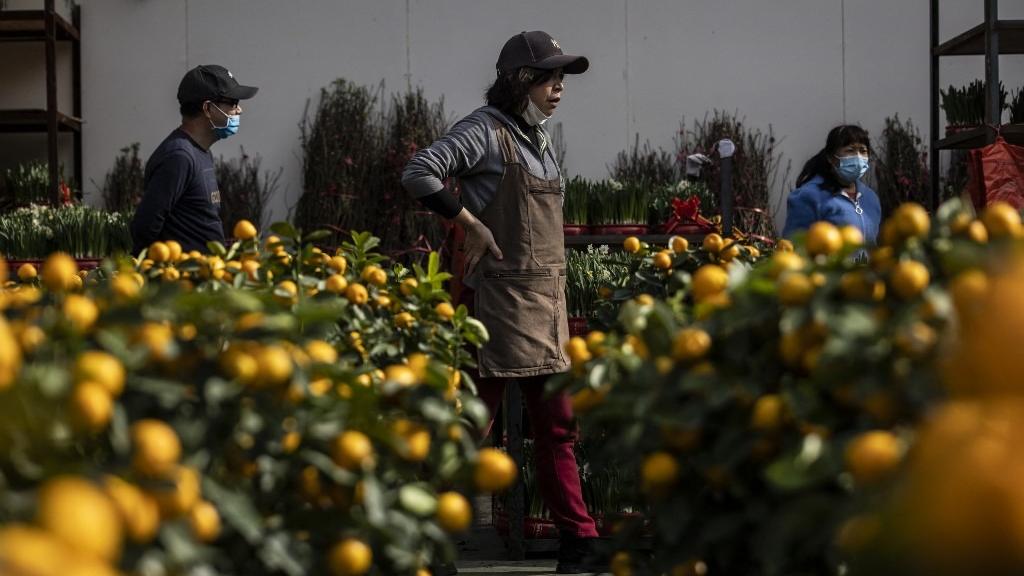 A worker walks amongst Kumquat trees at a Lunar New Year market in Hong Kong on Jan 20, 2023. (PHOTO / AFP)
A worker walks amongst Kumquat trees at a Lunar New Year market in Hong Kong on Jan 20, 2023. (PHOTO / AFP)
HONG KONG - The overall consumer prices in Hong Kong rose by 1.7 percent in March over the same month a year earlier, according to consumer price index figures released on Friday.
This is smaller than the average rate of 2.1 percent recorded in January and February this year mainly due to decreases in basic food prices, the Census and Statistics Department said in a press release.
A Hong Kong Special Administrative Region government spokesman said that the underlying consumer price inflation rate eased to 1.7 percent in March from 2.1 percent
The comparison to the average rate of increase in January and February is to neutralize the effect caused by different timing of the Lunar New Year between two years, which occurred in late January this year but in early February last year, it added.
READ MORE: China's consumer inflation hits 18-month low
Netting out the effects of all government’s one-off relief measures, the year-on-year rate of increase in the the underlying inflation rate in March was also 1.7 percent, smaller than the average rate of increase in January and February.
A Hong Kong Special Administrative Region government spokesman said that the underlying consumer price inflation rate eased to 1.7 percent in March from 2.1 percent for the first two months combined, as basic food prices turned to a year-on-year decline against a high base of comparison caused by the epidemic-induced supply disruptions last year.
Among the various components of the Composite CPI, year-on-year increases in prices were recorded in March for electricity, gas and water (19.9 percent), alcoholic drinks and tobacco (18.7 percent), clothing and footwear (6.3 percent), meals out and takeaway food (4.5 percent), transport (2.8 percent), miscellaneous services (2.7 percent), and miscellaneous goods (1.0 percent).
READ MORE: Hong Kong's November inflation up 1.8%
On the other hand, year-on-year decreases in the components of the Composite CPI were recorded in March 2023 for basic food (-2.8 percent), durable goods (-2.8 percent ), and housing (-0.2 percent).
Looking ahead, the spokesman said domestic cost pressures may increase alongside the improved economic situation, while external price pressures are likely to remain notable for some time.
“Overall inflationary pressure may increase gradually, but should remain moderate in the near term,” he said.


